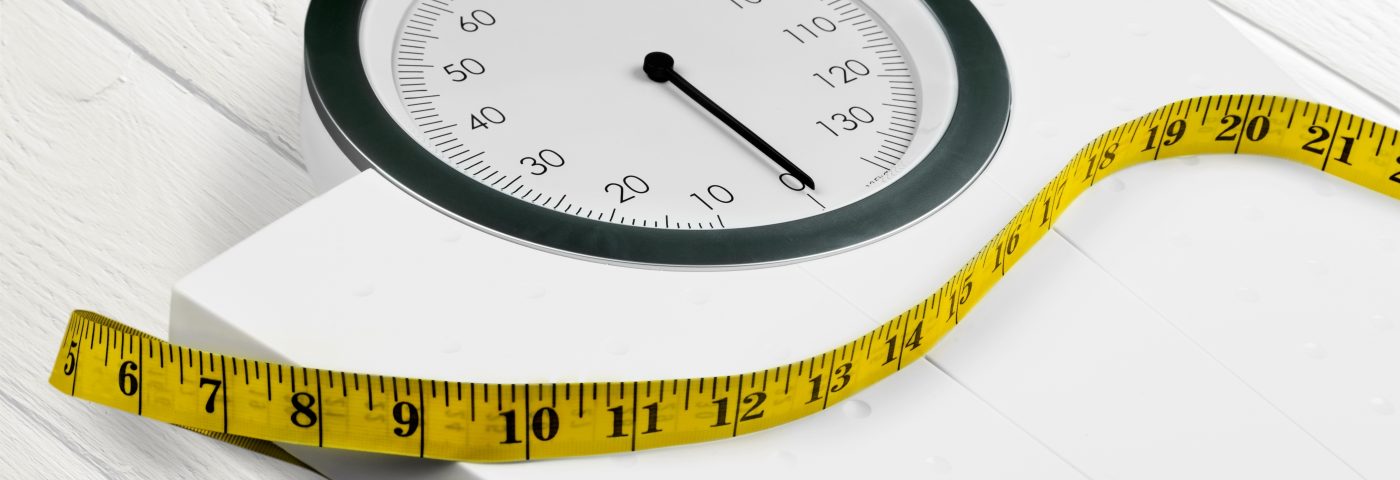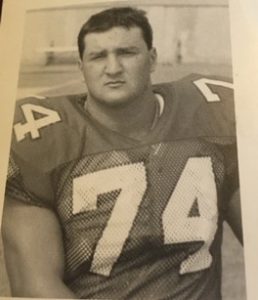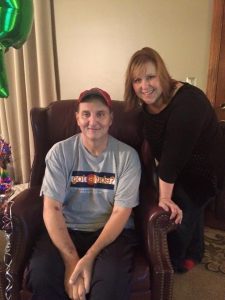Here’s How My Body Changed on My Journey with IPF
Written by |

When I was diagnosed with idiopathic pulmonary fibrosis (IPF), I didn’t comprehend what the disease could do to a person’s body. Normally, losing weight would be an ideal situation. For me, it was essential because I needed to lose 80 pounds to be under the required body mass index (BMI) for transplant. It affected me in ways I didn’t expect.
I have always been a “husky” body type. I knew I was husky because when my mother would buy my clothes at Kmart, we always went straight to the husky section. As the years went on, I gradually grew wider and taller. As a senior in high school, I weighed about 240 pounds and stood at 6 feet, 2 inches. I went on to receive a football scholarship at Youngstown State University in Ohio, where I gained about 30 more pounds.
The process for losing weight for the transplant was a little confusing. I always wondered if the way my heart raced when I stood up had anything to do with facilitating weight loss. My heart rate would beat at an aerobic training heart rate for fat burning. Did this help me lose weight? Did this break down my muscle and subsequently leave me with basically a skeleton? That was my interpretation.
Although I was a husky male, I did have a lot of muscle and was considered strong and athletic. My body makeup essentially stayed the same until I was diagnosed with IPF and was told to lose weight or I would be ineligible for a transplant. At that point, I was 310 pounds and otherwise healthy. I lost a majority of this weight without exercising as I was recovering from respiratory syncytial virus, or RSV. The first 60 pounds seemed to fly off me as I believe my increased heart rate, which remained high, had deceived my body into believing I was exercising.
Interested in Pulmonary Fibrosis research? Check out our PF forums and join the conversation!
I did change my eating habits. Suffering from this disease, I could no longer eat like I used to. Previously, I had been a big-portion eater. It took a lot of food to keep my body at a high weight. When I ate larger portions, it adversely affected my breathing. Breathing and being short of breath became a problem. I felt the best when I ate five or six mini-meals a day. These meals usually were high in protein and had a medium amount of carbs. Ofev (nintedanib) also helped to keep the weight down, as one of the side effects of taking Ofev is intestinal tract problems.
When I looked at my body during this time, I could see how the disease had debilitated it with muscle loss, fat hanging loosely around, and a bit of face droop. This disease is a nasty and cruel addition to one’s life. But weight had to be lost. At that point, I had 20 more pounds to lose. I thought: What will I look like at 230 pounds? That was a weight I hadn’t seen since I was a junior in high school. At 250 pounds, I carried my weight well but still had to reach the BMI requirement, which was below 30. My weight at 30 BMI would be 230 pounds.
I reached my goal of 230 pounds right before getting listed in September 2015. My wife, friends, and family thought I looked great. But I really didn’t agree. I thought it was kind of ironic that in the worst period of my life, I weighed the least I had since high school. They may have liked it, but I begged to differ.
I maintained my weight until transplant. I felt that I also had put on some muscle mass through weightlifting. The only cardio I could do was riding a stationary bike. I joined a gym and was doing my phase 3 pulmonary rehab there. The workers were very helpful and would get me an oxygen tank if I needed one and would help me back to my vehicle. Luckily, I was able to work out until the day I received the call.
I lost 9 pounds during my 18-day stay at the Cleveland Clinic, where I had the transplant, but I feel there was a lot of muscle loss due to atrophy and minimal movement. I did, however, walk a mile and receive a star for my athletic endeavor. As I looked at myself back then, I couldn’t believe it was me. I always had been a physically strong looking person, and at that point, I didn’t even want to look at myself.
Now, I work out regularly. Although it is tough, I have managed to put some muscle back on. They say the prednisone we take makes it tougher to add muscle back to the body. I believe this is true. But I’ll keep working.
What issues have you had with weight loss or gain during your pulmonary fibrosis journey? Please share in the comments below.
***
Note: Pulmonary Fibrosis News is strictly a news and information website about the disease. It does not provide medical advice, diagnosis, or treatment. This content is not intended to be a substitute for professional medical advice, diagnosis, or treatment. Always seek the advice of your physician or other qualified health provider with any questions you may have regarding a medical condition. Never disregard professional medical advice or delay in seeking it because of something you have read on this website. The opinions expressed in this column are not those of Pulmonary Fibrosis News or its parent company, Bionews Services, and are intended to spark discussion about issues pertaining to pulmonary fibrosis.









Mike D
Thanks for your column, Mark. Keep sharing the good the bad the ugly. I've been on Ofev for a year now and will be listed later this year most likely. I have lost 20 pounds and experienced many ugly side effects from the drug and disease.
Mark Koziol
Thank you Mike D. for reading the column. I appreciate your input and what you are experiencing with this awful disease. Stay strong and stay active as much as your health permits.
Denise Stevens
I eat normal but still seem to lose weight. I was diagnosed back in 2012 no oxygen yet. Not much news on a cure for IDP will keep my hopes up; for a cure.
Mark Koziol
Thank you Denise for your response. Unfortunately many IPF patients continue to lose weight without trying. A very good sign for you is that you are not on supplemental oxygen. I like to hear that with IPF patients, especially for the length of time you have been diagnosed. Stay strong and keep active. If losing weight is a major issue please speak with your doctor or a registered dietician. Hopefully they can rectify this situation.